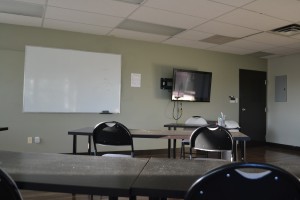
They say that preparing is half the battle and this is never been truer than in emergency situations. Even young kids should learn basic first aid so that they’ll know what to do. But how can you make first aid training easy to understand and fun so that it would register with children. The best way is to approach it interactively so that the learning method used is more effective. It’s been observed that when children are able to practice or do first aid techniques first hand, they remember more information. Here are some suggestions on how to make learning first aid fun.
- Make a personal first aid kit
Make a list of things you need to put in a first aid kit and ask for suggestions from your kids or students. Discuss how each item is used and why it should be included in the first aid kit. Choose a container for your first aid kit, like a plastic storage box, a tackle box or a cloth bag that can be closed tightly. Let the kids decorate the first aid kit and help them gather and organize all the items on the list you created.
- Make a first aid poster
Have the kids make posters with a theme related to first aid topics. Tell them they can draw or cut out. Choose interesting, relevant and easy to understand topics for their first aid poster themes. Tell them they can include suggestions for materials to place inside a first aid kit, directions on how to make one or instructions for taking care of small injuries. Once they’re done with their poster, have each kid show their work to others and guide them into a conversation about the poster and its first aid topics. You can even display these posters to remind the children of the first aid skills they have learned.
- Go on field trips or invite guest speakers
Most kids are afraid of police officers, doctors, dentists or going to hospitals since most are frightened of medical situations. You can make first aid courses non-threatening, fun and memorable by going on a field trip to a hospital or fire station. This will give kids the chance to meet emergency personnel in a relaxed environment that will help allay their fears. If a field trip is out of the question, you can invite a doctor, police officer or other medical professionals to visit and talk with the kids. These medical professionals or emergency responders can share their stories or give first aid advice.
- Play act first aid situations
Play acting can give kids the chance to practice different first aid situations. For example, you can provide a phone and then have the kids practice calling 911 and what they should say to the operator. You can set up a pretend clinic area where they can practice the different steps to giving first aid. The purpose of play acting is to make the kids more comfortable with the idea of giving first aid.
- Practice what they learned on each other
After learning about different procedures in their first aid and CPR courses, let the kids practice what they learned on each other. Put first aid supplies that they need at their disposal. Assign each kid a partner. Then describe a specific an emergency situation, like a sprain or a cut, after which they should administer the right first aid for that particular injury.
It’s never too early to start teaching kids the importance of first aid and CPR. You can organize a first aid class with the help of your community institutions or local government. Make it fun so kids will remember it and inspire them to learn more about it.
